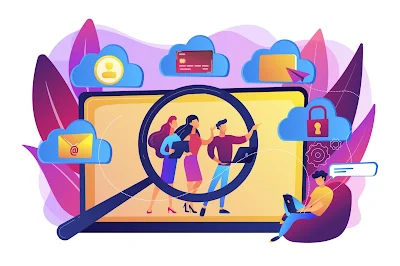As technology advances, the necessity for ethical hackers becomes increasingly vital. Ethical hacking is the practice of detecting flaws and vulnerabilities in computer systems and network infrastructure in order to implement security measures to avoid cyber assaults. In this article, I will discuss the significance of ethical hacking, the benefits of taking an ethical hacking course, the different types of ethical hacking, the skills required for ethical hacking, the ethical hacking course curriculum, ethical hacking learning modules, ethical hacking tools and techniques, ethical hacking career opportunities, and a summary of the significance of ethical hacking.
Introduction to Ethical Hacking
Understanding the Importance of Ethical Hacking
The Benefits of Taking an Ethical Hacking Course
Types of Ethical Hacking
Network hacking, online application hacking, wireless network hacking, social engineering, and physical security hacking are all examples of ethical hacking. Exploiting flaws in network infrastructure to obtain unauthorized access to systems and data is what network hacking is all about. online application hacking is the process of finding vulnerabilities in online applications in order to get unauthorized data access. Wireless network hacking is the practice of exploiting weaknesses in wireless networks to get unwanted data access. Manipulation of individuals is used in social engineering to get access to sensitive data. Physical security hacking is the practice of circumventing physical security measures in order to obtain unauthorized access to data.
The Skills Required for Ethical Hacking
Ethical Hacking Course Curriculum
Network security, online application security, wireless network security, social engineering, and physical security are among the subjects covered in the ethical hacking course curriculum. Programming languages such as Python, Java, and C++ are also covered, as well as operating systems such as Linux, Windows, and macOS. The ethical hacking course gives students hands-on experience with ethical hacking as well as the most up-to-date tools and techniques in the industry.Learning Modules of Ethical Hacking
Understanding the principles of ethical hacking, network scanning, enumeration, vulnerability analysis, exploiting vulnerabilities, password cracking, online application security, wireless network security, social engineering, and physical security are among the learning modules of ethical hacking. The learning modules are intended to offer students a thorough grasp of ethical hacking as well as the abilities necessary to become an ethical hacker.
Tools and Techniques Used in Ethical Hacking
The tools and techniques used in ethical hacking include network scanners, vulnerability scanners, password crackers, exploit frameworks, and social engineering tools. Ethical hackers use these tools to identify vulnerabilities in computer systems and network infrastructure and to exploit them to gain unauthorized access to data. Ethical hackers also use these tools to provide security measures to prevent cyber attacks.
Career Opportunities for Ethical Hackers
In the IT business, there is a growing demand for ethical hackers. Security consultants, security analysts, penetration testers, network security engineers, and security auditors are all examples of ethical hackers. Ethical hackers can operate in a variety of fields such as banking, healthcare, government, and education. Ethical hacking is a lucrative profession with significant earning potential.
Conclusion
In today's digital world, ethical hacking is critical. Ethical hackers utilize their skills and experience to find vulnerabilities and weaknesses in computer systems and network infrastructure so that security measures may be implemented to avoid cyber assaults. Taking an ethical hacking course will provide you the skills and information you need to become an ethical hacker. The curriculum for the ethical hacking course includes subjects including network security, online application security, wireless network security, social engineering, and physical security. Ethical hacking is a lucrative profession with significant earning potential.
